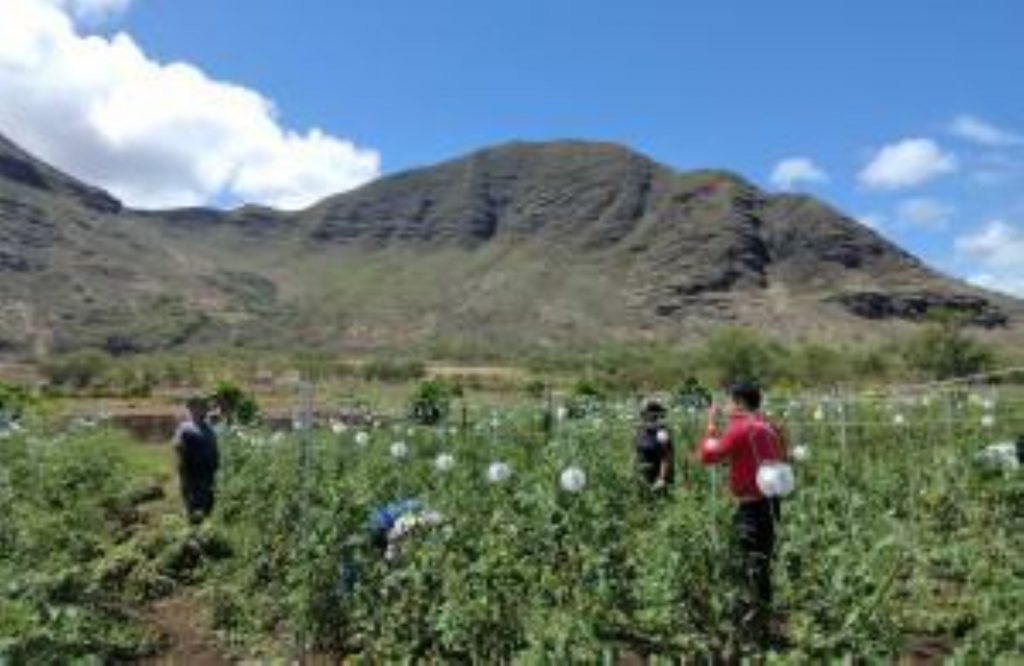Unlocking innovation with agreement to share UH’s environmental research expertise
Hawaiʻi’s economic growth, development and environmental well-being already are buoyed and supported by prominent, diverse and world-renowned research through programs at the University of Hawaiʻi in astronomy, earth and ocean sciences, medicine and tropical agriculture.
UH has developed a well-known reputation for just how good it is at what it does because of its research track record. It is now the first to lend its expertise to the rest of the nation.

The Hawaiʻi state university recently signed an agreement to provide its environmental research mastery to the National Caucus of Environmental Legislators.
The caucus serves as a nonpartisan network of more than 1,300 environmentally-committed state legislators representing all 50 states working to protect, conserve and improve the natural and human environment around regional and issue-specific projects.
The memorandum of understanding allows the caucus to seek assistance from UH faculty and researchers, who will be able to lend their environmental expertise to state legislators in the nonprofit organization throughout the nation.
“Our pre-eminent capabilities in environment protection and conservation research have been built organically over many decades and are now widely recognized,” said UH President David Lassner. “This new agreement will enable us to share what we have learned with others around the country, as we do throughout Hawaiʻi and the Pacific.”
UH will connect caucus members to appropriate subject matter experts. If more research or reporting is needed, caucus members can also direct UH to available grant opportunities that can assist with the additional tasks.
Requests from the National Caucus of Environmental Legislators will be processed through the recently created UH Office of Land and Ocean Conservation Futures, which is led by Suzanne Case, the former director of the Hawai‘i Department of Land and Natural Resources.
“Natural resource management and conservation are no longer just catch phrases, as Hawaiʻi and the world are facing an onslaught of environmental challenges that are threatening our well-being,” said UH Vice President for Research and Innovation Vassilis L. Syrmos. “I’m pleased that [the National Caucus of Environmental Legislators] has partnered with UH research to assist them with various initiatives to help preserve and maintain our natural environment.”

UH-Mānoa, the flagship of the university’s 10-campus system, is classified as a Research 1 institution and one of a handful of land, sea, space and sun grant universities.
UH researchers also have world-class expertise in myriad environmental-related fields such as biological control, biocultural restoration, agroforestry, natural resource management, invasive species management, oceanography, clean energy, hydrology and indigenous knowledge.
“We are unlocking an incredible new opportunity for innovative policy solutions by connecting legislators with the research and expertise of the University of Hawaiʻi,” said Dylan Lee, National Caucus of Environmental Legislators executive director and board of directors president. “This partnership is an important part of [the caucus’] efforts to connect our network of 1,300 lawmakers with UH experts across the globe on some of the most pressing environmental challenges.”
Lee thought bringing to bear all of UH’s world-class research and resources would laser focus the vision of his caucus to advance a clean and healthy environment through state leadership.
“Equipping policymakers around the country with real science and data on our biggest issues will empower state leaders to deliver more effective and successful results for communities … ,” said Lee. “At a time when courts have begun to restrict the scope of science in decision-making by the federal government, it’s more important than ever that states take the lead.”
Sponsored Content
Comments





_1770333123096.webp)


